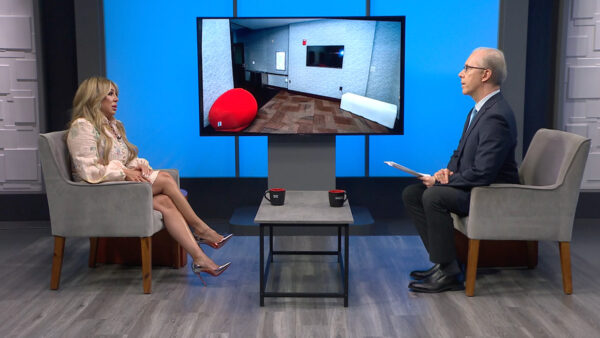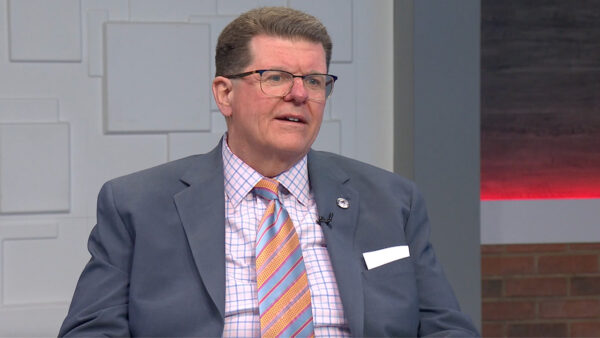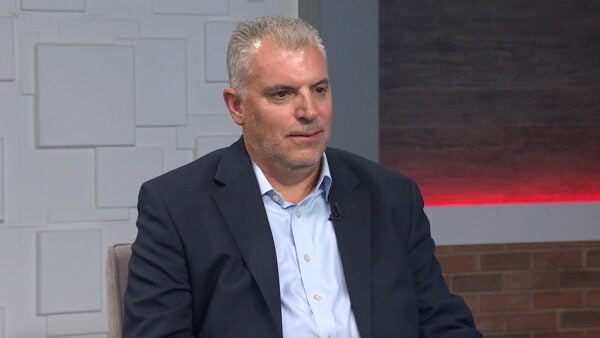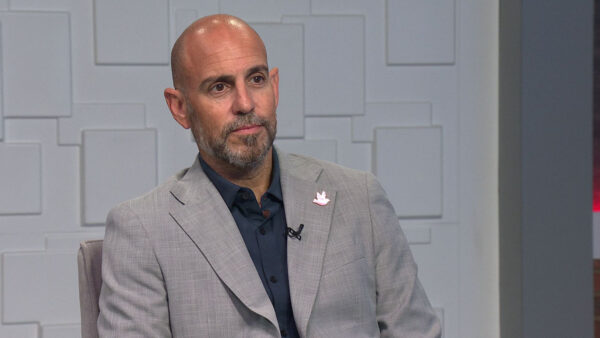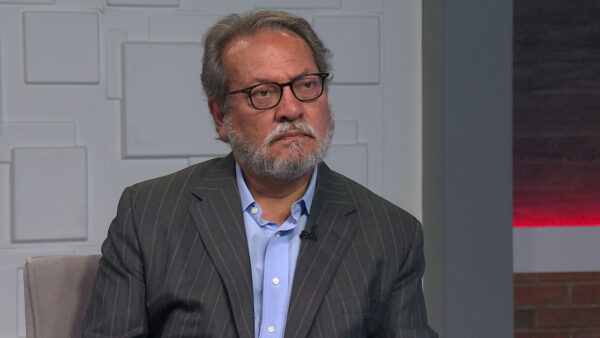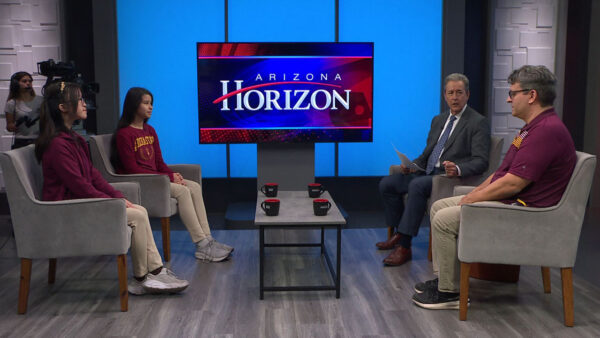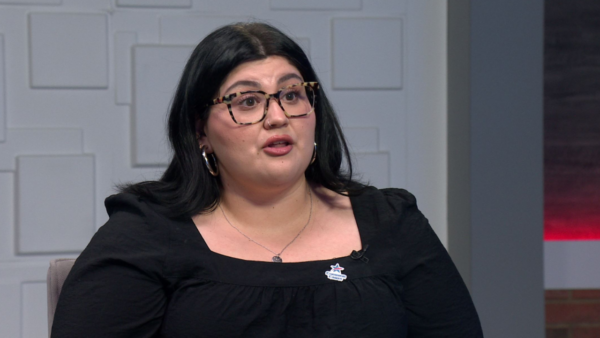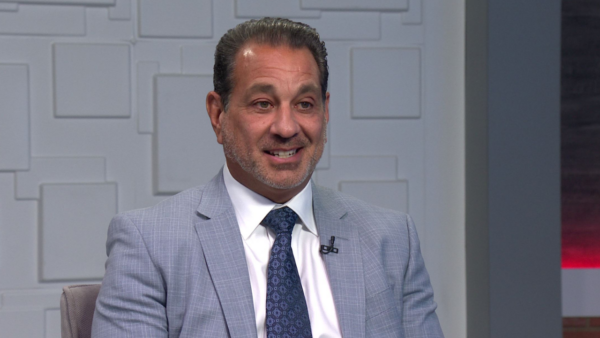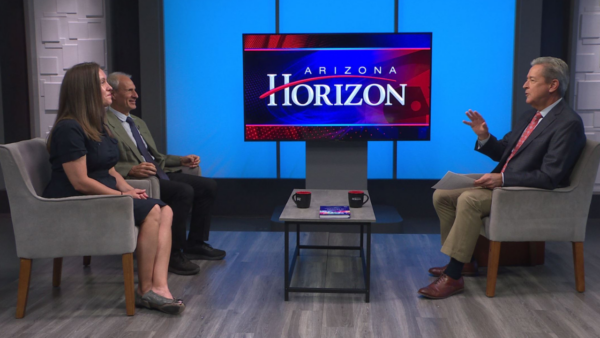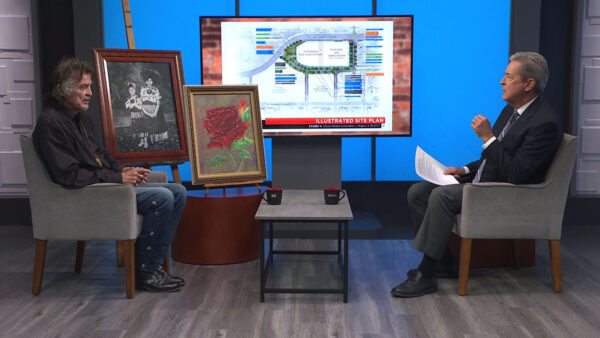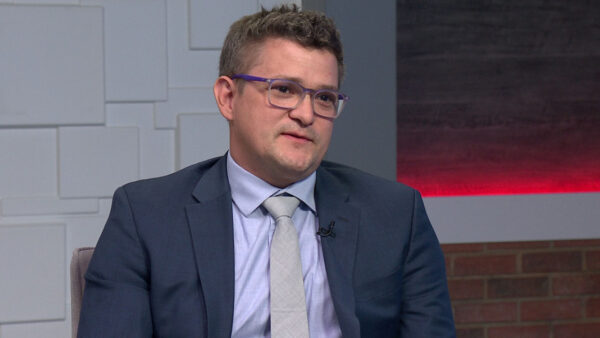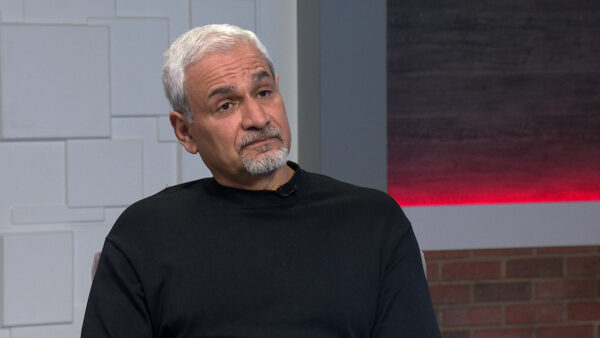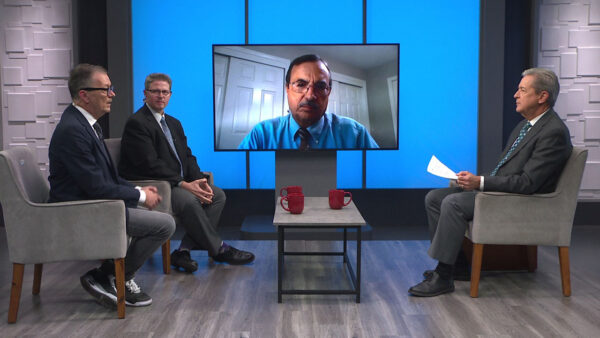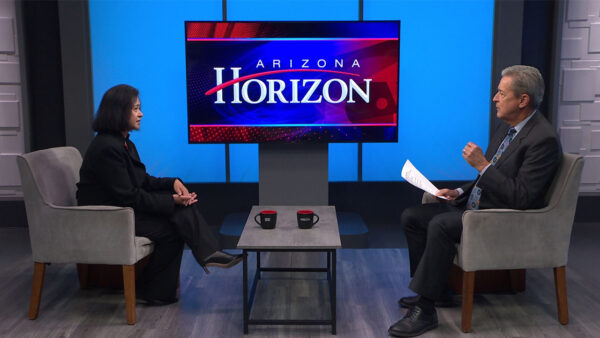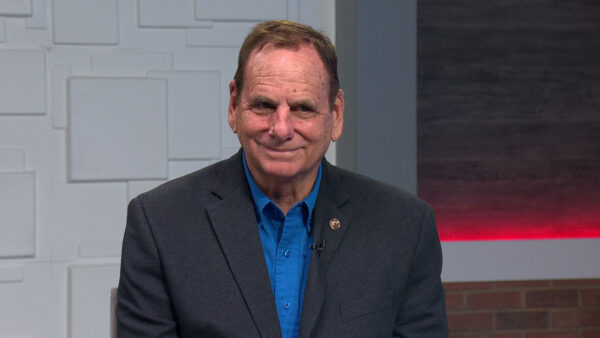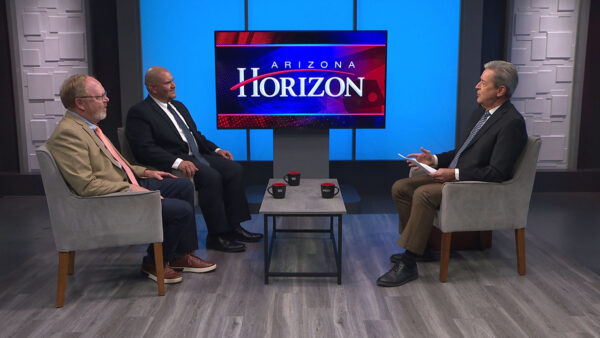The 29th Annual Policia International Sonora-Arizona Conference was held recently in Tempe. The annual international conference includes law enforcement agencies from all jurisdictional levels in the United States and Mexico, who gather to address law enforcement related issues plaguing both sides of the border. U.S. Marshall for Arizona David Gonzales will discuss the conference and issues affecting regarding cross-border crime.
Ted Simons: The Policia International Sonora-Arizona Conference was held last week in Tempe. The event invites law enforcement agencies in the United States and Mexico to meet and address issues plaguing both sides of the border. Here to talk about the conference and cross-border conference concerns is David Gonzales, U.S. Marshal for Arizona. Give us a better idea of what this conference was designed to do.
David Gonzales: Over the years Arizona and U.S. law enforcement and our Mexican counterparts, we try to work crime issues together, but things would just kind of stop. Over the years we developed new relationships and started to have annual conferences, three-day training sessions to talk about these cross-border issues, not only affecting law enforcement but the judicial side of things. The judicial side on the Mexican side is completely different from the U.S. side. So working through those issues. The last six years with the cartels and the violence that has occurred have really raised the stakes in the game here. The cartel violence you see is directly related to the distribution routes of drugs coming into this country.
Ted Simons: With that in mind, how many agencies, what kind of agencies involved on U.S. and Mexico?
David Gonzales: Absolutely. On the American side there were state, local and federal agencies from all along the southwest border. And from Mexico we saw state, federal law enforcement and military, which is very, very big in law enforcement there. And also judges and prosecutors from the PGR, Mexico's equivalent of the U.S. Attorney's Office.
Ted Simons: What is the state right now of cross-border cooperation? What are you seeing out there?
David Gonzales: It's very good. We have -- because based on these contacts we have, we work very closely together. I'll give you an example. With the U.S. Marshals service one of our primary responsibilities is to hunt down fugitives. There are thousands in the U.S. and Mexico. We work very closely with the Mexican police to get those fugitives out so they can face their crimes here. When it comes to identifying cartel members or other crimes, money laundering, one of the big issues also is the vast amounts of money that the cartels make, billions of dollars, a lot of them laundered through American financial institutions. We deal with those issues. Also we have guns going south, money going south, and then drugs and human smuggling coming North. We try to mesh up to deal with all of those issues.
Ted Simons: Try to mesh up to deal with those issues. How successful, and has that success ratio changed over the years?
David Gonzales: Unfortunately, it has changed recently. Under the previous president, let's say my agency, I could deal one on one with the head of the Sonoran state police or the head of the immigration issues for Sonora. I'm getting a fugitive or a suspect, we're getting information. Under the new president that has changed dramatically. There's been a dramatic shift where all intelligence information, all requests for assistance have to go through Mexico City.
Ted Simons: It's all centralized.
David Gonzales: Very centralized.
Ted Simons: There is a reason for that?
David Gonzales: Well, I think the Mexicans say that it's to kind of coordinate, do better coordination of information going out. But I foresee -- this is just my opinion -- I think it's going to slow down information dramatically. In law enforcement intelligence is the key for everything. Everything should be intelligence-based. Investigation, whether it's from organized crime to murders, you want intelligence. The way intelligence works you don't want to give intelligence to people that you don't know where it's going. So that's going create some major issues. We have developed relationships in Mexico for years and years and trust and confidence in our counterparts. And vice versa, where we could share intelligence. Now going to Mexico City in a centralized God knows where, that might have an effect.
Ted Simons: Will prosecutorial investigations be in some ways hindered or challenged, in jeopardy?
David Gonzales: It could be. In Mexico only 2% of crimes get convictions.
Ted Simons: Wow.
David Gonzales: That was another issue discussed at the conference. Mexico is trying to change their judicial court system into an oral-based system like we have here. Their system is paper-based. And there's no -- you're not innocent until proven guilty there. They are trying to change the system and it's been that way for a long, long time. It's like trying to move the Queen Mary. You can see there's a big, big issue that we're dealing with, and a group of us trying work on those, the ones that the deputy marshals who work for me or the FBI or the DEA or ATF working with our counterparts there to try and make good cases, solid cases in Mexico, because you know, this is the -- Arizona is the place where the majority of the drugs coming into this country come through. We need to do a better job.
Ted Simons: Let's talk about drug cartels, drug smuggling, and human smuggling. I understand there is some coordination between the cartels and Arizona gang members, as well, and really has been for quite a while?
David Gonzales: The last couple of years cartels started working with our homegrown street gangs and prison gangs. You could see they have illusion because prison gangs started to control our street gangs a long time ago. They know the areas, they know where the drop houses are, they can deal in our culture better than maybe some of the cartel capos organizations or leaders there. They are working very closely with our American street gangs and prison gangs.
Ted Simons: Is that a kind of investigation that is improving? Is it now hitting a few road blocks because of the centralization down in Mexico? What's the evolving nature here?
David Gonzales: The evolving nature is that it's going slow down I think a lot of investigations, and indictments, because getting information will be so slow. You know, in a perfect world, you want information now, you want things now. But when you're dealing with two diametrically opposed cultures, when it comes to crime issues -- take for example a state policeman in, say, Sonora. If they find drugs on a person, they can't investigate it. It goes to the Feds. The jurisdictional boundary is sometimes very, very confusing. That needs to be looked at very closely, also.
Ted Simons: The Arizona woman that was held down there, obviously a mistake there, obviously concerned, yet was held for quite a while. Talk about the dynamics there. How does that impact the relationship between the two countries and the two law enforcement sides?
David Gonzales: Yeah, you know, there was I think five kilos of marijuana found underneath her seat. Some said it was planted. I believe one of the drug groups there put it under there. It happens all the time. Then it turned into a shake-down maybe afterwards. So the impact on something like that -- you can have those kinds of issues in the United States where you make mistakes, but in the United States I think it would have been completely different, the way that was handled.
Ted Simons: Was that something that Mexican authorities, law enforcement, et cetera, did they look at this later and say, time to recess? Or was that just one of those, hey, we're doing our jobs.
David Gonzales: I think why this woman was held for so long is because of that centralization of information in Mexico City.
Ted Simons: Interesting.
David Gonzales: You know, something like that occurred here, you know, I could deal or a supervisor could deal with that very quick and move along. I think all this information was going to Mexico City, things got bogged down and was she in jail for seven, Eight days?
Ted Simons: Conversely, immigration enforcement, in part, just the issue itself, how does that impact how you cooperate with law enforcement, prosecutorial folks in Mexico?
David Gonzales: When it comes to crime and the immigration issues, they are kind of separate, you know? It's obviously a huge divide between our two countries. Now, where it really comes in is on the human smuggling aspect of it. Because the same cartels that bring in the cocaine, heroin, marijuana into the U.S., those same distribution routes are used for human smuggling, also. We can use some of the same tactics for the immigration issues that we would use on investigating drug trafficking or organizational DTO.
Ted Simons: That particular issue obviously a very volatile issue here in the United States. Maybe a couple of squints, a cross-eyed look there? Cooperation hasn't been impacted all that much?
David Gonzales: It really hasn't. The immigration issue doesn't really come up. They figure it's a political issue that hopefully will work its way through our system, and you know, when it comes down to it we're all law enforcement officers trying to do the best for the communities, make it safe. But I tell you, I have a lot of respect for the Mexican police. We had people here, high-ranking commanders who had hits on them. Under heavy guard. One guy was driving down the street and someone shot an RPG grenade at him.
Ted Simons: Oh, my goodness. Good to have you here.
David Gonzales: Thank you.
David Gonzales:U.S. Marshall;









